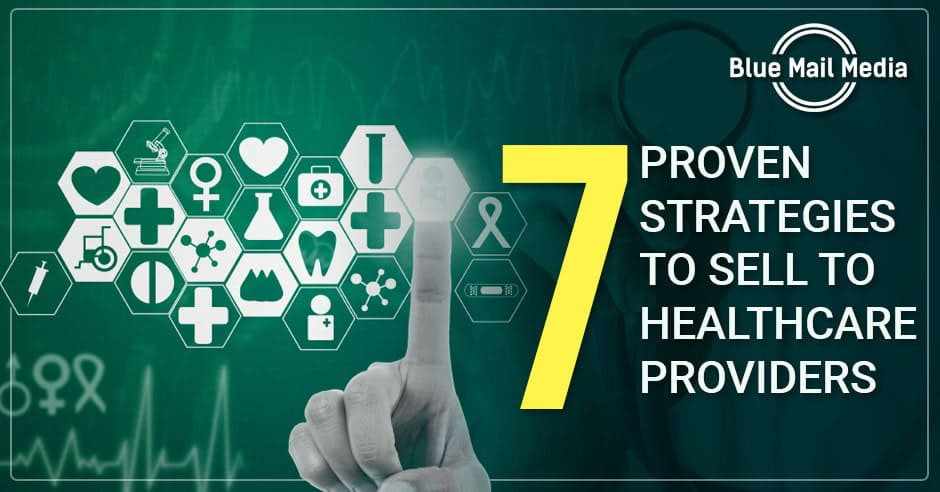
Healthcare is arguably the largest B2B segment, but the task of selling to medical professionals can be really challenging. The medical professionals are very careful about their purchases and always put safety and quality above everything else. Therefore, distinct marketing strategies are required.
Below are some secrets to selling into core Healthcare Providers and creating ongoing, effective lead generation systems.
Take time to research what role your prospect has – direct buyer or influencer? In healthcare, every prospect is going to have a vastly different influence on the purchasing process.
For example, if you’re working with a self-employed physician, running his/her practice, you will have to deal with a single decision-maker. On the other hand, when you’re selling to a hospitals or surgery centers, it gets a lot more complex. You might need to work with a purchasing department or a buying group. In such cases, it is important to map out your client’s purchasing hierarchy and identify the key professionals involved in the buying process.
Sorting through which professionals will have the greatest sway over the hospital’s purchasing decisions will ensure you focus on developing business with the right people.
Finding professionals with the greatest influence over the hospital’s purchasing decisions, especially in the case of big hospitals, can be a really daunting task given there might be hundreds of people. Also, finding their contact information can take weeks as there are several levels involved in hospital management.
Therefore, another helpful approach is to start with the key opinion leaders (KOL) within the network.
Who are Key Opinion Leaders?
Key Opinion Leaders (KOLs) are influencers with proven expertise in the medical community. These professionals can help inform your sales strategy and messaging and help put you in contact with the right decision-makers. The Key Opinion Leaders can become your sales champion. Therefore, forming a good relationship with the KOLs is a proven method for ensuring sales success.
The Benefits?
You gain rapport within your target health system as you will be able to clearly demonstrate the benefits of your products or services and prove their positive effect on patient outcomes.
Identifying the pain points of a medical facility shows your prospect that you understand what challenges they have to face daily, and you want to help them with a solution designed to address those pain points.
Your solutions may not completely solve their problems, but they should tie directly to alleviate some of their challenges.
For example, if a hospital’s complication rates for a total knee replacement are very high, they may face huge penalties from CMS. If you can offer a prosthesis that can improve implant longevity, it would help hospitals decrease the risk of complications, long-term care costs and avoid hospital revenue loss and CMS penalties.
Selling to medical professionals is different due to the following reasons:
However, with these important things in mind, you can overcome their reluctance:
To be successful, you’ll need to test new ideas, track results, and continuously improve based on the previous results.
Test various media to generate your leads, including videos, emails, trade publications, paid search, SEO, e-newsletters, affiliate marketing, social media, trade shows, telemarketing, review sites, and every online and offline channel you can think of.
The key takeaways from these statistics are that:
Although doctors are smart and constantly learning, it is nearly impossible for them to keep current on every topic pertaining to healthcare and issues that come up every day.
Providing useful, relevant information will help you get their attention and enable you to earn their trust.
72% of healthcare professionals start with a search when buying a product or service.
This figure highlights the importance of content marketing in healthcare.
By offering valuable content to your prospects, you will be able to bring a consistent flow of new leads into your pipeline.
Compliance with regulatory guidelines, standards, and safeguards is of utmost importance to the healthcare industry because fines and penalties for non-compliance can be quite steep. Therefore, you have to make sure that you’re completely compliant if you sell products that deal with electronic protected health information (ePHI).
For instance, if you sell breathing machines for patients suffering from sleep apnea, some machines may record and store patient health information during sleep so that it can be analyzed by physicians to track patients’ progress using the machine. This data must be safeguarded under HIPAA (Health Insurance Portability and Accountability Act) regulations. A data breach can have severe financial consequences for the healthcare provider and damage their reputation as well.
Medical professionals are often quite hard to reach and averse to risks as their decisions can impact patients’ lives. By incorporating the above strategies, you will be able to position yourself as a trusted business partner and experience greater success.
Several marketers today leverage different digital marketing tactics to reach their targeted audiences. But, with… Read More
Chief Marketing Officers are the masterminds driving an organization’s bottom line: the marketing department. They… Read More
The anodizing of aluminum was initially started to improve the appearance of the products, but… Read More